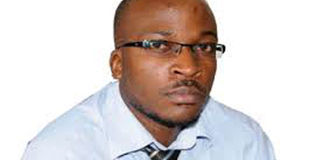My maths teacher almost murdered me, and he prolly even had a degree!

Daniel K. Kalinaki
What you need to know:
- Knowledge on the Internet. Asking teachers to become subject matter experts speaks to an age of the enlightened master, with their well-thumbed copy of Ordinary Level Physics by A.B. Abbot, at the front of the class, with obedient subjects taking copious notes. That age is gone, buried under the weight of the knowledge on the Internet.
There was Miss Biology – as short as a specimen, hair pulled back in a puff at the back of her head, hips and lips moving across the front of the class, going on about chromosomes and chlorophyll. All I recall was the small white plastic bottle in which she constantly and, as surreptitiously as possible, spat the tell-tale signs of her morning sickness.
Then there was Mr Mathematics, who, clearly ignorant about biology or the human anatomy, believed that by repeated applications of the cane to the buttocks, could somehow imprint algebraic formulae and simultaneous equations onto our brains.
Or the A-Level ‘Divinity’ teacher whose favourite direct-translation phrase, “The Christians for them they say…” always triggered alternating feelings of mirth and good Old Testament anger.
Then, of course, there was King Osca, whose idea of using newspapers to teach English to middle-schoolers triggered a life-long friendship and addiction to mischief, trouble-causing, and telling stories.
There were dozens, maybe hundreds more over the years, some fondly remembered, others thankfully forgotten, even if, to be honest, I hardly remember most of the stuff they taught. I can’t, for the life of me, convert amps to volts, but I know that if you stick a metallic fork into an electric socket you might, ohm, ask ‘watts going on’?
I also know, although not sure whether from physics or civics, that when the missus is pissed off at you each and every one of your actions will have an equal and opposite reaction. I also know that it was the great American philosopher Mike ‘Tython’ Tyson, who made the rather profound observation that everyone has a plan…until they are punched in the mouth.
These life lessons are shared in response to plans by the government to compel teachers to ‘upgrade their papers’ and get at least one, but ideally two degrees. I have not seen or read the research findings that inform this policy but, as a life-long student, I can tell you for free that it isn’t very clever.
Part of it is basic economics of demand and supply. There was a time when degree holders were few and far between, and people listed their MAs and BScs on their business cards. Now it is blasé even for doctorate holders to append PhD to their name, except among fellow trauma survivors.
With so many degrees sloshing around, including some you can buy from vending machines, it is not surprising that as many as one in three graduates end up with non-graduate jobs – and that’s in the United Kingdom. Trust me, it’s much higher here and the investment in graduate studies doesn’t necessarily promise a higher return of income, or on investment, and certainly not on a teacher’s salary. Your Boda guy was probably in Mitchell.
Of course, on average, people with higher degrees often earn more than those without, but some research suggests it is the person – and their initiative, including pursuing and obtaining the degree – that determines the success and higher income, not the degree. No wonder many enlightened employers now look beyond qualifications to competence, including soft skills like emotional intelligence, which they don’t teach in school.
Asking teachers to become subject matter experts speaks to an age of the enlightened master, with their well-thumbed copy of Ordinary Level Physics by A.B. Abbot, at the front of the class, with obedient subjects taking copious notes. That age is gone, buried under the weight of the knowledge on the Internet. We now exist in a new world order of self-teaching and peer learning; in which knowledge evolves constantly; in which textbooks can become obsolete before they are printed and bound.
Good teachers should, of course, master first principles and have practical training in and knowledge of pedagogy, or how learning takes place. Atop this they should then layer practical skills of mentorship and other life skills that will allow them to help their charges find themselves, first within the confined classroom space, before being released into the gladiatorial amphitheatre of modern life.
Rather than endear quadratic equations to me, violence by Mr Mathematics only steeled me in the ability to take 20 lashes of the cane, walk back to my seat nonchalantly, and hold it in until I could weep into my porridge at break time.
Yet, through kind and patient encouragement, the late Prof Rose Mbowa revealed to me all the mathematical truths I needed over a month of private lessons. Good teachers need not have master’s degrees or master the universe; they just need to be great teachers and role models. Get your degree if you want, by all means, but don’t let it define you – or become the key criteria for those who shape our learners.
Mr Kalinaki is a journalist and a poor man’s freedom fighter. [email protected].
Twitter: @Kalinaki.




